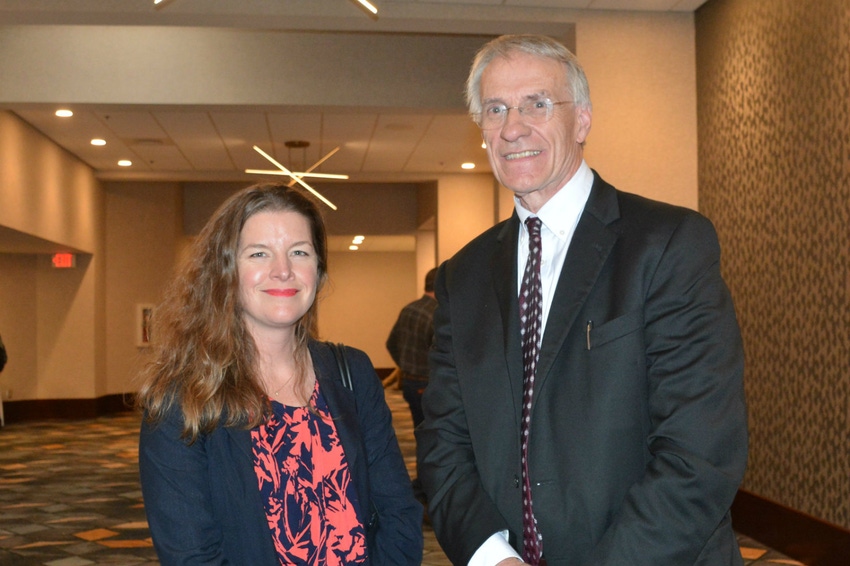
Virginia Tech Economist Dr. David Kohl sees another year of low margins and high volatility for crop producers.
“While we think volatility is a challenge, it is actually an opportunity. What you have to do is have the discipline to execute and market these commodities to capture that window of profitability. There won’t be a lot of home runs, but a lot of base hits,” said Kohl, professor emeritus of agricultural and applied economics at Virginia Tech, at the 30th North Carolina Commodities Conference at in Durham.
Kohl urges farmers to manage around the headlines. “If all you do is pay attention to the headlines, you’re not going to do anything. Don’t get caught up in all the noise. Focus on what you can control in your business,” he said.
Kohl said international trade is the 800-pound gorilla in the room because $1 out of every $5 in net farm income comes from international trade. He said a top priority is for Congress to approve the United States-Mexico-Canada (USMCA) trade agreement.
Also, the global economy is slowing. Kohl said the tariffs imposed by President Donald Trump are a factor in China’s economic slowdown, but the slowing began before the tariffs were imposed. Europe and Japan are showing negative economic growth rates.
Moreover, Kohl said stiff global competition will remain since more land went into farm production for the past 10 years. From 2008 to 2018, U.S. corn acreage climbed 27 percent while Brazilian corn acreage climbed 85 percent and Argentinian corn acreage climbed 175 percent.
Soybean acreage climbed 55 percent in Brazil and 85 percent in Argentina from 2008 to 2018.
“It is extremely, extremely competitive in the marketplace. The world is creating more supply not only through technology, but more land use,” Kohl explained. “Brazil puts land the size of the state of Vermont and half the size the state of Rhode Island in production every year, tearing up the Amazon. That’s what we are competing against.”
Long-term, Kohl said the decade of the 2020s to 2030s is going to very disruptive to agriculture and other sectors of the economy. The millennials, Generation Z and the generation he calls “Generation A,” which are students in elementary school today, are watching baby boomers age. These generations all want to be different than baby boomers and that will impact markets and buying behavior.
“Dietary trends are definitely changing. One in 10 Germans is now a vegan; 6 percent of the U.S. is vegan,” he said.
As for farm income, the period from 2007 to 2012, which Kohl calls the “agricultural commodity super cycle,” when approximate net farm income in constant dollars reached $125,000 won’t soon be repeated.
“2007 to 2012 was an unusual period. We won’t go back to that. That has only been replicated three other times since 1910, around World War I, just after World War II and the 1970s. That period is not coming back,” he said. “The really good business manager is going to get a bigger portion of a smaller pie. That is what’s coming in the future.”
About the Author(s)
You May Also Like






